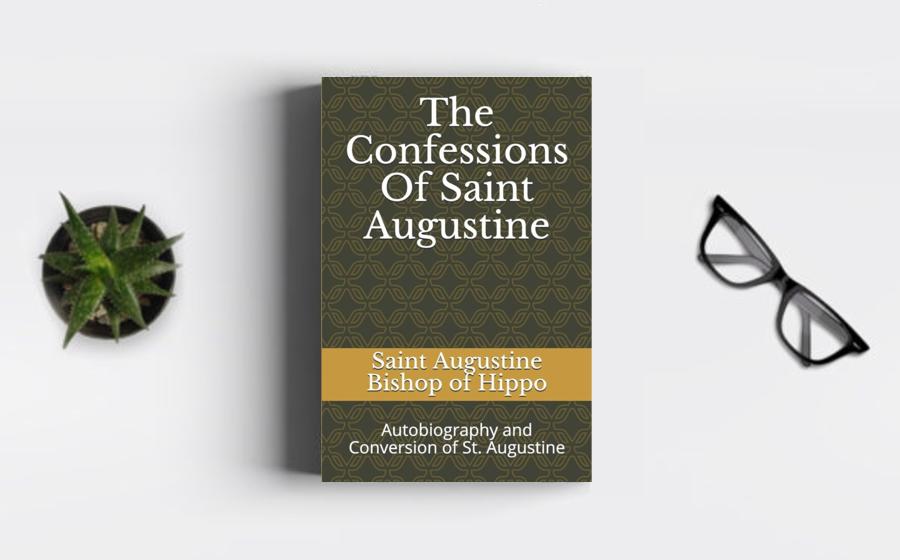Augustine's "Confessions" stands as a towering work
of introspection, theological exploration, and spiritual
awakening. Written in the form of a prayer, this
autobiographical narrative invites readers into the
inner sanctum of Augustine's soul, where the
complexities of human nature, the pursuit of truth, and
the transformative power of divine grace unfold. In this
review, we will delve into why "The Confessions" is
celebrated as one of the most inspirational books of all
time, exploring Augustine's profound introspection, the
enduring relevance of his inquiries, and the impact of
his journey on readers seeking a deeper understanding of
themselves and the divine.
Augustine's "Confessions" is a pilgrimage into the
depths of selfhood, an intimate dialogue with God that
lays bare the complexities of the human soul. From his
early years in Thagaste to his eventual conversion to
Christianity, Augustine unflinchingly examines his
desires, doubts, and dilemmas. The narrative unfolds in
the form of a prayer addressed to God, transforming the
text into a sacred space where Augustine confronts his
own flaws and wrestles with the questions that define
the human experience.
The introspective nature of
"The Confessions" makes it a timeless companion for
readers engaged in the perennial quest for
self-discovery. Augustine's unreserved exploration of
his own shortcomings and the internal conflicts that
shaped his journey resonates with individuals navigating
the labyrinth of their own souls. The power of
introspection lies in its ability to transcend the
boundaries of time, offering readers a mirror in which
to reflect on the universal struggles and triumphs that
define the human condition.
"The
Confessions" transcends the realm of autobiography to
become a philosophical inquiry into the nature of truth,
existence, and the divine. Augustine grapples with
fundamental questions that continue to echo through the
corridors of intellectual discourse: What is the nature
of God? How do we attain knowledge of the divine? What
is the relationship between the material and spiritual
realms?
Augustine's pursuit of truth becomes a
beacon for readers engaged in their own philosophical
inquiries. His reflections on the nature of time, the
origin of evil, and the essence of love serve as
timeless provocations for intellectual contemplation.
Whether pondering the enigma of memory or unraveling the
mysteries of divine revelation, Augustine invites
readers into a dialogue that transcends the boundaries
of historical context, beckoning them to join the quest
for truth and meaning.
At the heart of "The
Confessions" lies Augustine's transformative encounter
with divine grace and his eventual conversion to
Christianity. The narrative unfolds as a testimony to
the profound impact of God's mercy on the human soul.
Augustine's journey from a life of indulgence and
intellectual restlessness to a state of spiritual
surrender becomes a testament to the redemptive power of
divine grace.
The theme of conversion in "The
Confessions" resonates with readers as a narrative of
hope and possibility. Augustine's struggles with the
allure of worldly pleasures, his intellectual inquiries,
and his internal conflicts mirror the multifaceted
challenges faced by individuals in their own spiritual
journeys. The narrative becomes a source of inspiration,
inviting readers to contemplate the transformative
potential of divine grace in their lives and encouraging
them to embark on their own journeys of spiritual
renewal.
"The Confessions" has left an
indelible mark on the literary and theological
landscapes, solidifying its status as a timeless
classic. Its influence extends beyond the realm of
autobiography, shaping the works of philosophers,
theologians, and writers throughout the ages.
Augustine's theological reflections on sin, grace, and
the nature of God have become foundational to Western
Christian thought, making "The Confessions" an enduring
cornerstone of theological literature.
The
narrative's literary brilliance also contributes to its
lasting legacy. Augustine's poetic language, rhetorical
prowess, and mastery of narrative structure elevate "The
Confessions" to the realm of literary artistry. The
beauty of his prose captivates readers, drawing them
into the contemplative atmosphere of the text and
intensifying the impact of his spiritual journey.
"The Confessions" remains a guide for seekers of
truth across time, offering a roadmap for those
navigating the complexities of the human soul and
yearning for a deeper connection with the divine.
Augustine's introspection, philosophical inquiries,
transformative encounters, and enduring legacy
collectively contribute to the narrative's relevance for
individuals in diverse cultural and spiritual contexts.
The universal themes explored in "The Confessions"
ensure that the text continues to speak to readers
seeking inspiration and guidance in their own quests for
self-discovery and spiritual awakening. Augustine's
openness about his struggles, doubts, and ultimate
surrender to divine grace makes "The Confessions" a
beacon of authenticity, inviting readers to confront
their own vulnerabilities and embrace the transformative
journey towards a more profound understanding of
themselves and the divine.
Augustine's "Confessions" stands as one of the most inspirational books of all time due to its profound introspection, philosophical inquiries, transformative encounters, literary and theological legacy, and enduring relevance. The narrative serves as a timeless companion for those engaged in the quest for self-discovery and spiritual awakening, inviting readers into the sacred space of Augustine's soul.






